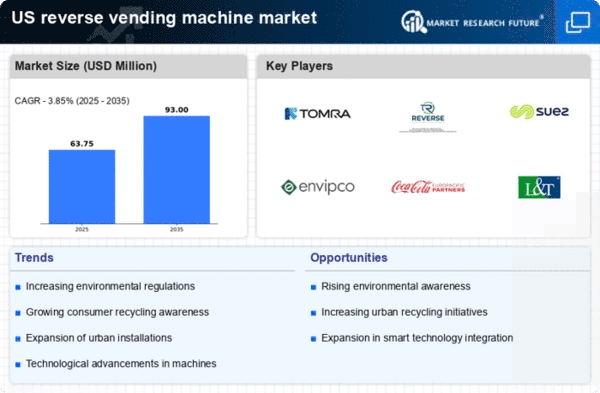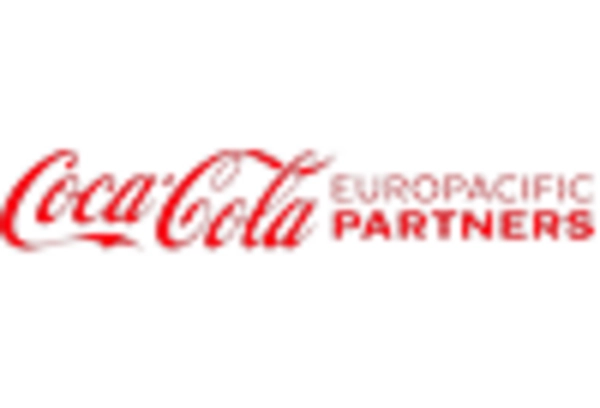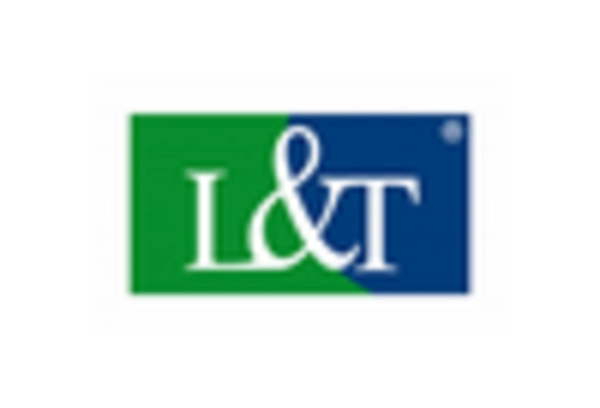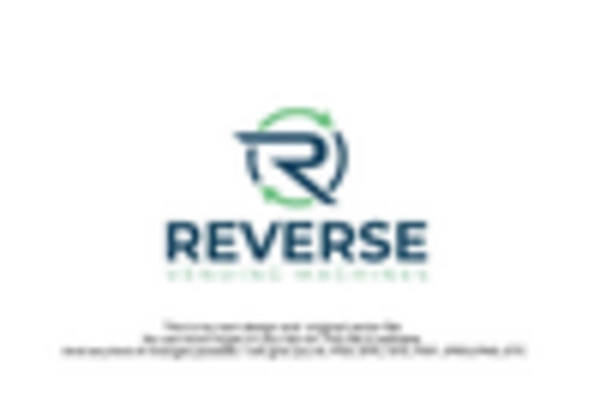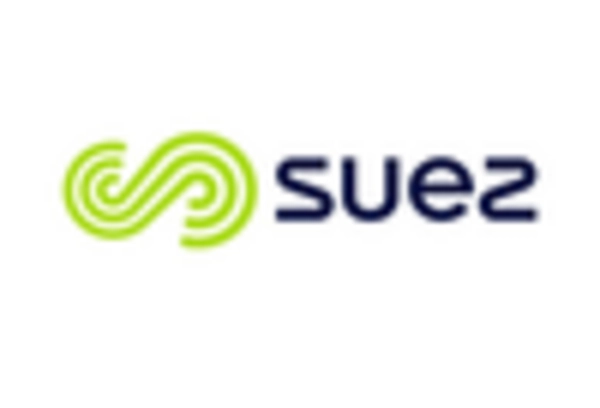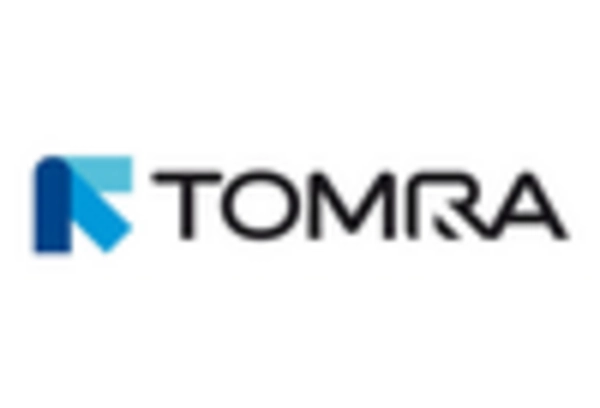Growing Environmental Awareness
The increasing environmental consciousness among consumers is a pivotal driver for the reverse vending-machine market. As individuals become more aware of the detrimental effects of plastic waste, they are more inclined to participate in recycling initiatives. This trend is reflected in the rising demand for reverse vending machines, which facilitate the recycling process by providing incentives for users. In the US, studies indicate that approximately 75% of consumers express a willingness to recycle more if they are rewarded for their efforts. This growing environmental awareness is likely to propel the reverse vending-machine market forward, as municipalities and businesses seek to implement solutions that align with sustainable practices.
Corporate Sustainability Initiatives
Many corporations in the US are increasingly adopting sustainability initiatives, which significantly impacts the reverse vending-machine market. Companies are recognizing the importance of corporate social responsibility and are investing in recycling programs to enhance their brand image. By installing reverse vending machines at their locations, businesses can promote recycling among customers while contributing to environmental sustainability. This trend is particularly evident in the retail and hospitality sectors, where companies are implementing eco-friendly practices. As corporate sustainability becomes a priority, the reverse vending-machine market is likely to experience accelerated growth, with an estimated increase in installations by 15% over the next few years.
Consumer Incentives and Rewards Programs
The implementation of consumer incentives and rewards programs is a crucial driver for the reverse vending-machine market. By offering financial rewards or discounts for recycling, businesses can motivate consumers to engage in sustainable practices. In the US, programs that provide cash back for returned bottles and cans have shown to increase recycling rates significantly. This approach not only benefits the environment but also enhances customer loyalty and satisfaction. As more companies recognize the effectiveness of these programs, the reverse vending-machine market is expected to flourish, with a projected increase in user engagement by 20% in the coming years.
Legislative Support for Recycling Initiatives
Legislation aimed at enhancing recycling efforts is a significant driver for the reverse vending-machine market. Various states in the US have enacted laws that mandate recycling and impose penalties for non-compliance. For instance, bottle deposit laws encourage consumers to return containers for a refund, thereby increasing the volume of materials processed through reverse vending machines. The reverse vending-machine market benefits from such regulatory frameworks, as they create a structured environment that promotes recycling. As more states adopt similar measures, the market is expected to expand, with an anticipated growth rate of around 10% annually over the next five years.
Technological Advancements in Recycling Solutions
Technological innovations are transforming the reverse vending-machine market by enhancing the efficiency and user experience of recycling systems. Advanced features such as AI-driven sorting mechanisms and user-friendly interfaces are making these machines more appealing to consumers. The integration of mobile applications that track recycling habits and rewards is also gaining traction. In the US, the market for smart recycling solutions is projected to reach $500 million by 2027, indicating a robust growth trajectory. These advancements not only streamline the recycling process but also encourage higher participation rates, thereby driving the reverse vending-machine market forward.


